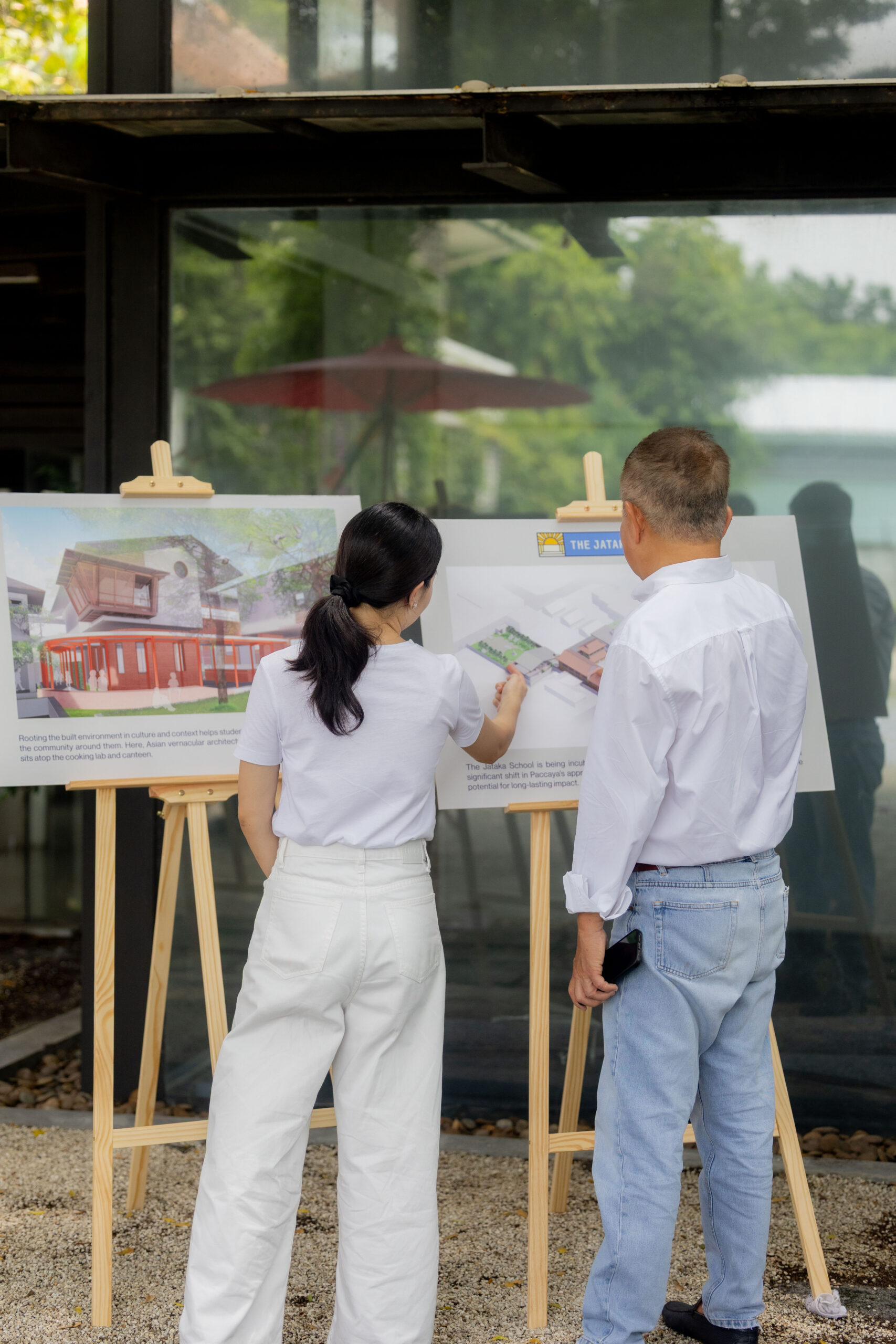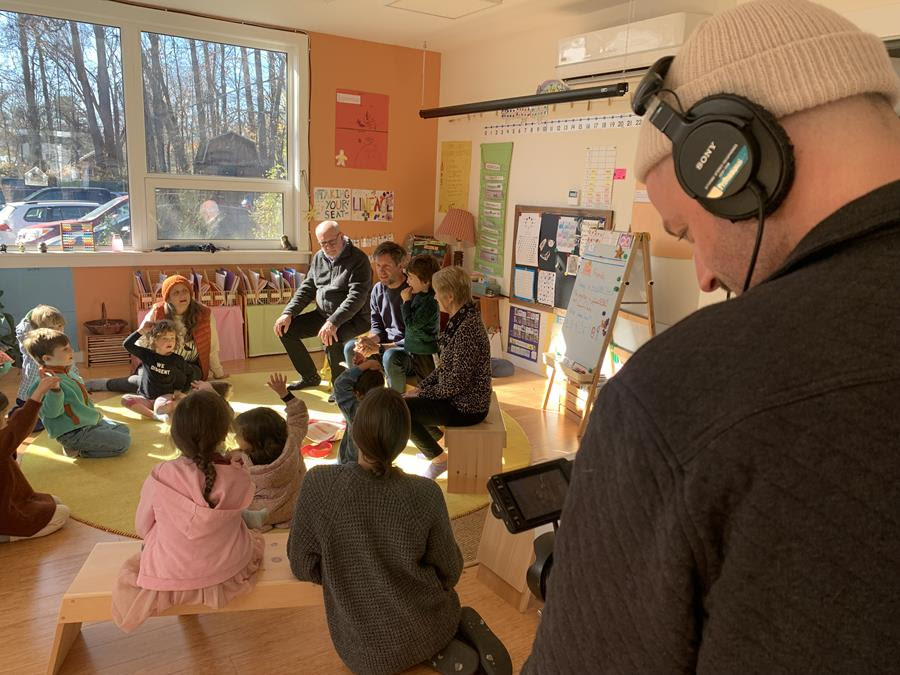
Awakening Seeds of Wisdom
Blue Lion Preschool, Singapore
Continuing our series “Bodhi Seeds,” we asked representatives from education programs and schools that Khyentse Foundation supports to respond to quotes by Dzongsar Khyentse Rinpoche about education. Our third issue features Blue Lion Preschool in Singapore, which was established under Rinpoche’s guidance in 2020. The school’s stated mission is to raise “little urban warriors of art, poetry, and music, who know that possibilities are endless and that it is their responsibility to love the Earth and the community.”

Continuing our series “Bodhi Seeds,” we asked representatives from education programs and schools that Khyentse Foundation supports to respond to quotes by Dzongsar Khyentse Rinpoche about education. Our third issue features Blue Lion Preschool in Singapore, which was established under Rinpoche’s guidance in 2020. The school’s stated mission is to raise “little urban warriors of art, poetry, and music, who know that possibilities are endless and that it is their responsibility to love the Earth and the community.”
Nestled on the second floor of a colonial post office in the Siglap district of Singapore, Blue Lion Preschool (BLP) is a licensed, nonprofit, private childcare facility for young children aged 18 months to 6 years, regulated by the Early Childhood Development Authority (ECDA) of Singapore. Currently 22 children are enrolled in the school.
With mind training at the core, along with a deep connection to sustainability and nature, the children at BLP are developing an experiential and embodied understanding of the principles central to the Buddhist view. Through purposeful learning programs, and with an avid community of adult and child learners and a multiplicity of indoor and outdoor learning environments, at BLP discovering our buddha nature is an ongoing experiment. Asian values, such as filial piety and an emphasis on hard work, academic excellence, and loyalty, are also integral to the curriculum.
Those working at BLP are a small group of Dzongsar Khyentse Rinpoche’s students who play the roles of educators, school artist, and curriculum developers specializing in both early childhood education and dharma learning. We bring with us different backgrounds in educational theory, art, crafts, Singaporean preschools, sustainability, and the dharma. We are also sensitive to the latest perspectives on the different relationships in a Singaporean preschool—those between child learner, teacher, curriculum planner, and parents.
Very important information is to make [the kids] know that yes, really strong, smelly, sticky, painful emotions come, [but] they are all manipulatable, pacifiable, purifiable … in fact they are temporary, and most important, they are like your clothes—you are wearing them, but they are not “you.” — Dzongsar Khyentse Rinpoche
Our approach to dharma learning has been to take specific ideas that Rinpoche has expressed in his teachings and apply them to our teaching modules. In the few years that BLP has been in operation, we have already been able to use Rinpoche’s ideas as test material for collecting data and developing educational theories that work for us. For instance, when helping the children to work with their emotions, we embrace an open and inquiring attitude, beginning with questions like, “What are you feeling?” As we all know, in the trauma-informed society that we live in, naming emotions has become common practice. We also touch on the idea that emotions are temporary and come and go.
An example of forward-thinking education that is science-based is to look deeply at how emotions affect our body—that is, introducing questions such as, “Where does anger sit in your body?” or “What does anger feel like in your body?” We explore topics related to socio-emotional learning within our understanding of Buddhist education for young learners. Alongside, we look at representing ideas through an active use of visual art—making things as a form of learning is a crucial amalgamation of scientific and artistic thinking as a combined discipline. This is a key example of how we are exploring education using Rinpoche’s ideas.
I’m sure the kids get angry, jealous, emotional … This is important—we need to somehow have step-by-step information. Very important information is to make [the kids] know that yes, really strong, smelly, sticky, painful emotions come, [but] they are all manipulatable, pacifiable, purifiable … in fact they are temporary, and most important, they are like your clothes—you are wearing them, but they are not “you.” … So, then they might say, “So who am I really?” The Buddhist answer is “Buddha,” but that of course is just a label. That kind of encouraging labeling is “branding,” basically. And why not? Buddha is a very good brand. It means “awakened,” “compassionate” … There’s nobody who doesn’t want to be awakened. — Dzongsar Khyentse Rinpoche
The educator’s role within the classroom is also characterized by an outer and inner journey—they are not only a teacher but a “weatherperson” (is a child ready for this?), a navigator (have they themselves been through the particular emotional journey a child is about to experience?), and a collaborator (as they partner a child on what is often a visceral path), amongst many roles. The walls of the classroom become undefined as learning takes place not just within the physical space as externalized, and young children are able to seek light (both sunlight and possibilities) beyond defined concepts.
As a preschool that focuses on learning through abstract concepts, often there is no discernible or tangible way of measuring success in the way that aptitude in subjects like English, Chinese, or math may be measured through assessment. However, it is already scientifically proven that the practice of naming and talking about emotions provides children with the tools to work with their feelings. A question that we face from time to time is how to present learning in a way that holds us accountable as a school. A second challenge is how we might assess learning in a way that is meaningful for both the assessed and the assessor, as well as for the parent. While we do use various methods to provide accounts of learning, we are also mindful to focus on learning journeys rather than on results.
Being a preschool that has now passed its third year of operation, BLP has been able to celebrate its nascent successes in a few humble ways. Firstly, we have been able to diversify the reach of our dharma curriculum beyond the offerings of a daily childcare routine to include a Sunday school setting. This has allowed our curriculum planning to be more focused on the dharma and to consider how we can include families in the material and extend conversations to the home. From an impact perspective, BLP now has working models for both preschool and Sunday school curricula that are suited to families with an Asian outlook.
Other small celebrations that we have had in our adoption of Rinpoche’s ideas include extending our work into more detailed curriculum planning and looking into possibilities of research topics that are relevant in our part of the world. In doing the above, BLP has been building relationships with community partners within and beyond Singapore, as well as with people within the Khyentse community. For the future, we hope to run more initiatives of knowledge- and perspective-sharing as we continue to build systems around our lab-style work in Buddhist mainstream education.
Featured image above: Finding and creating conditions to see a rainbow in our garden. All photos courtesy Blue Lion Preschool.






